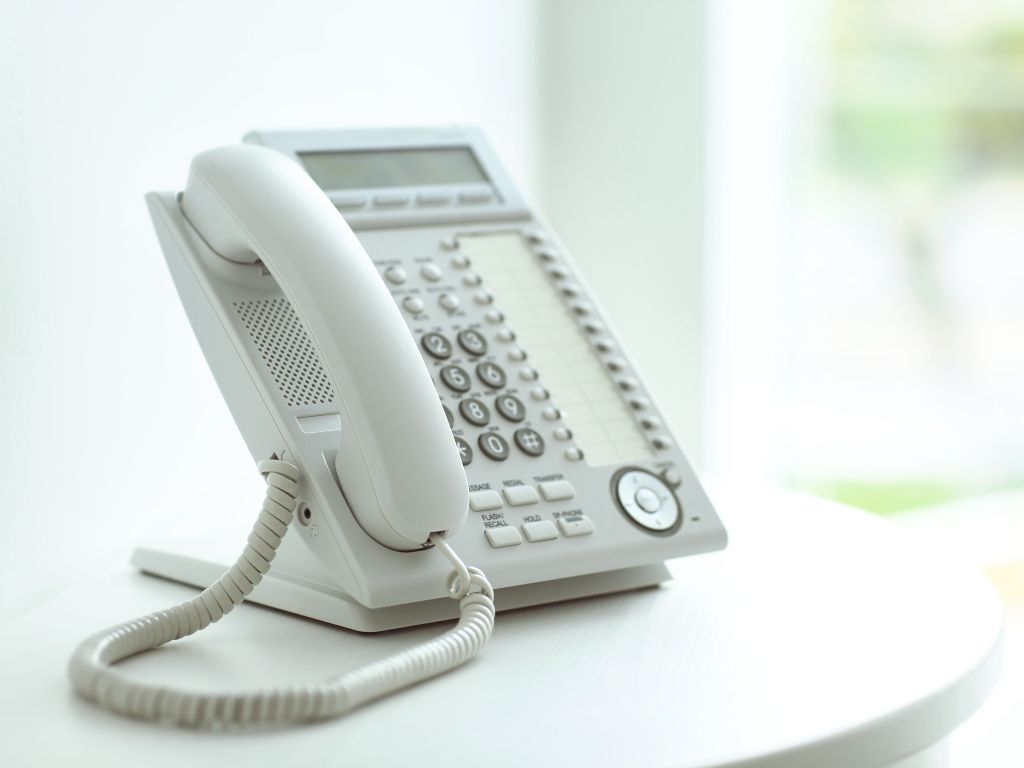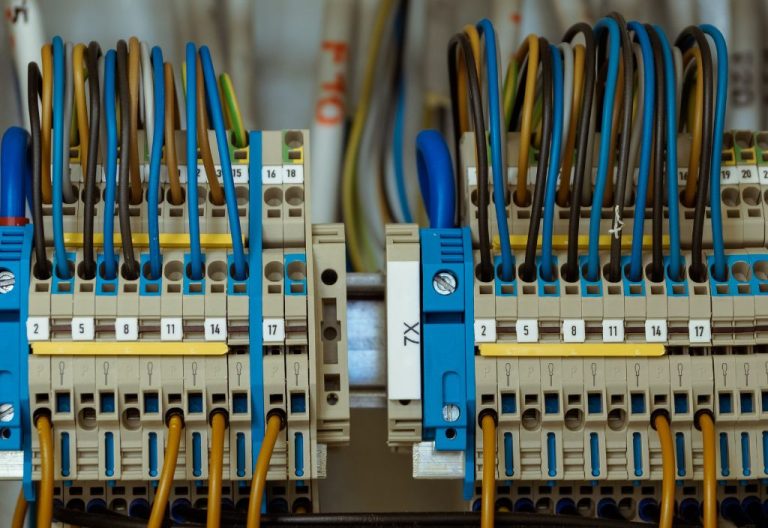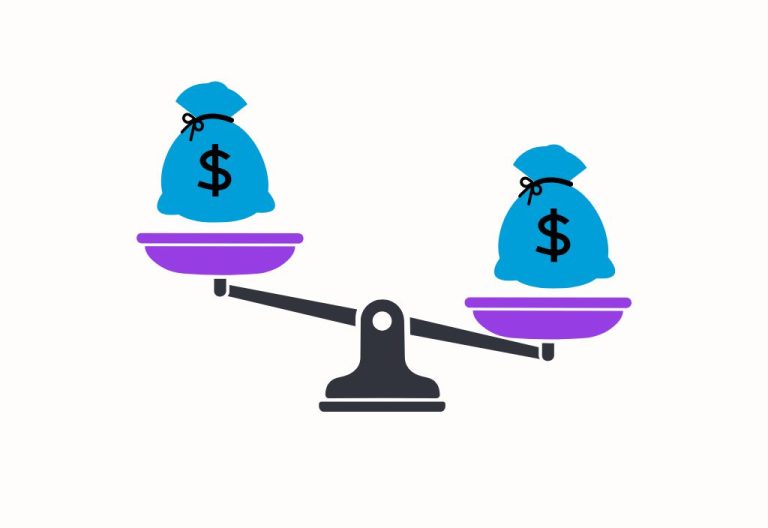Finding the best copper landline service today is becoming increasingly difficult as major telecom providers transition to fiber-optic and wireless technologies. However, most businesses still rely on this traditional technology for essential systems like alarms and emergency services.
For this purpose, the following phone service providers still offer copper landline services.
5 Best Copper Landline Phone Providers in 2025
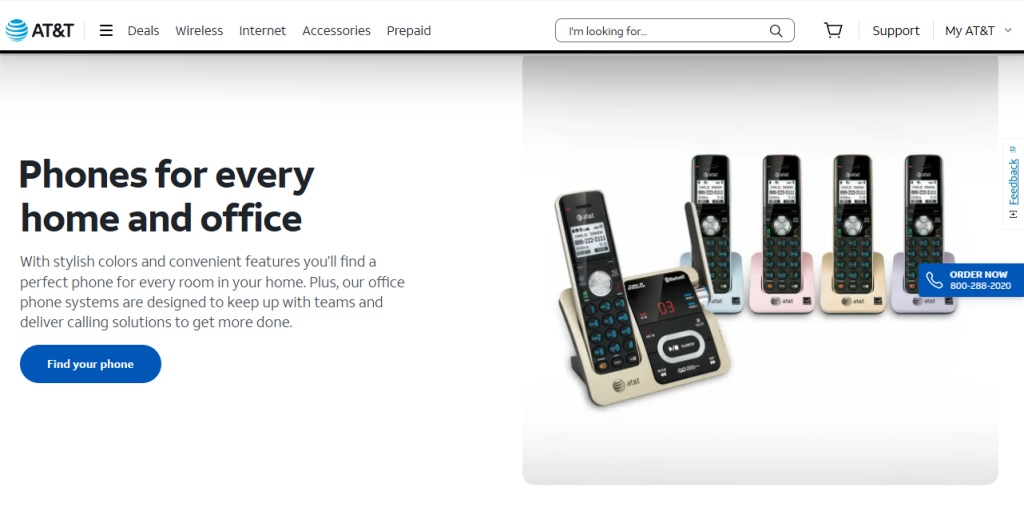
1. AT&T Landline Service
AT&T is the largest copper landline provider, covering 21 states across the US. Their copper network has been around for 70 years, and they have two landline plans:
- Traditional Home Phone at $55 per month
- Complete Choice Enhanced at $69 per month
Monthly plans include unlimited local calls and 911 services, with international and toll calls charged separately. You’d also have to pay extra for installation, inside wire, and subscriber line charges.
With the impending AT&T copper retirement, AT&T is switching consumers from traditional landline service to fiber optic or wireless connections. They’re offering AT&T Phone Advanced, where your landline handset connects to AT&T’s cellular network or broadband connection through a dedicated AT&T device.
AT&T Phone Advanced costs $45 per month (with unlimited nationwide calling) and $50 per month (with international calling). You’d also have to pay for the equipment.
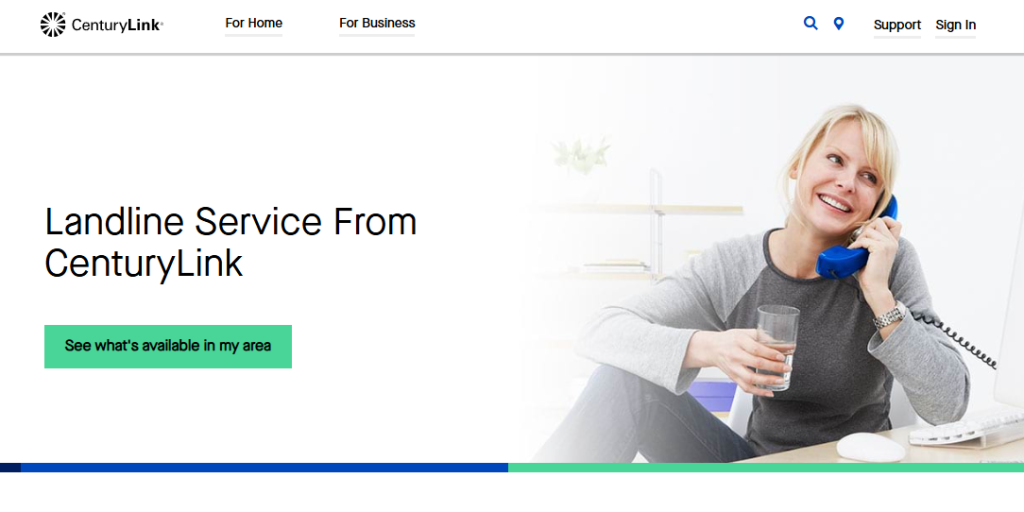
2. CenturyLink Landline
Very few telecom companies offer options for traditional landline solutions that rely on copper networks. Century Link is one of them and can even be considered the best copper landline for business users. They offer two plans for small businesses:
- Traditional Voice / Landline – best for ensuring reliable connections for elevators, fax machines, alarm systems, and point-of-sale credit processing
- Connected Voice – uses VoIP technology and is ideal for mobile and remote employees
Monthly bundles start at $95 per month, but you must contact their sales team to find the best deal for your needs. Century Link also offers internet bundles, which you can get with your voice plans to enjoy extra savings.
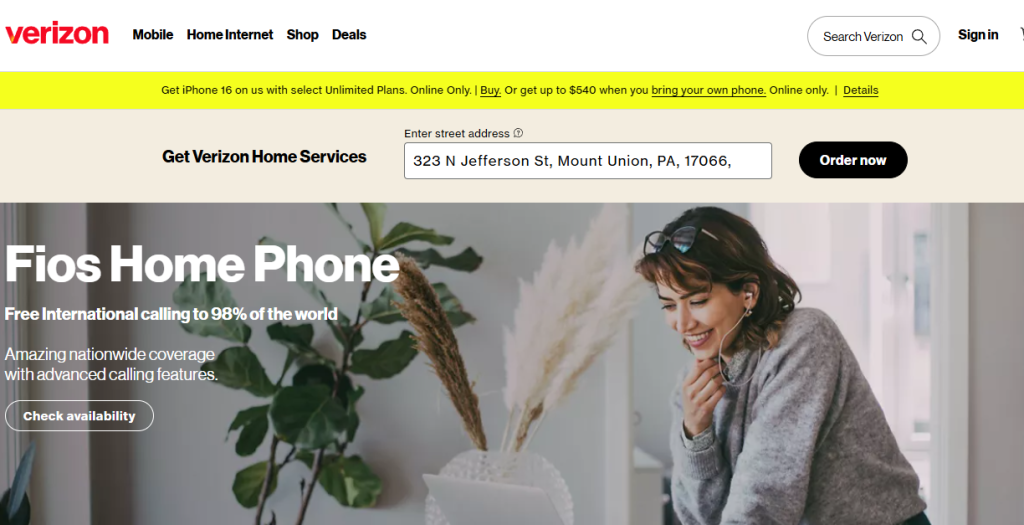
3. Verizon Home Phone
Verizon offers Fios Home Phone, a landline service that runs on its fiber optic network. You can only get copper landline services if you live in an area not covered by their fiber optic network. Unfortunately, very few of these areas remain, and you’d have to check with Verizon to know if your area still qualifies.
Fios Home Phone is a VoIP phone service that uses a broadband connection to make direct-dialed domestic calls and overseas calls. It has 30+ features, such as caller ID, voicemail, and spam call blocking, and uses traditional corded or cordless landline phones connected to your existing phone jacks.
Verizon Fios Home Phone costs $25 monthly, but fees vary depending on your location. You can also bundle it with internet starting at $74.99 monthly.
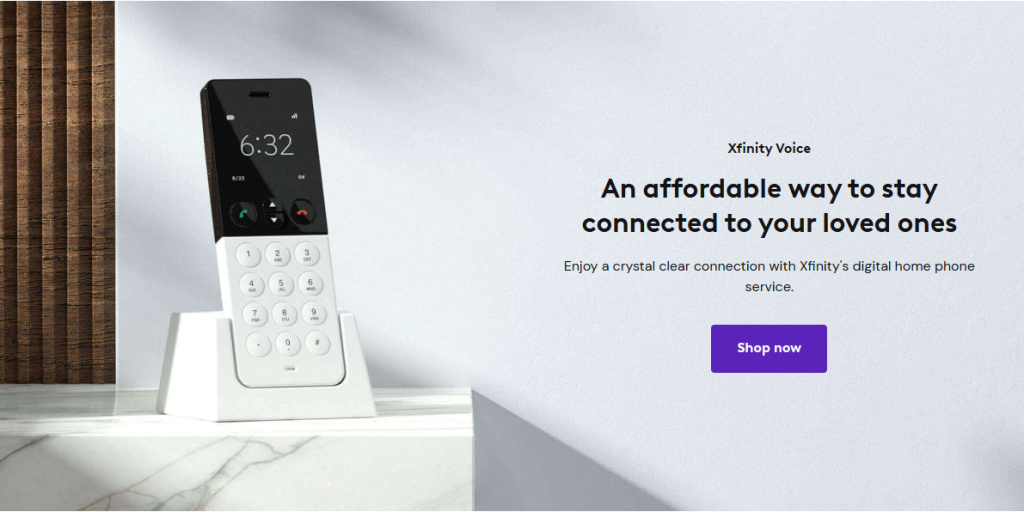
4. Xfinity Voice (Comcast)
Comcast doesn’t offer traditional copper landline services. Instead, it offers Xfinity Voice, a phone service that operates over Comcast’s broadband network. It uses VoIP technology and offers unlimited nationwide calls with enhanced call features. You can also enjoy competitive international calling rates, with some plans providing unlimited calls to select countries.
Xfinity Voice plans start at $30 monthly and includes unlimited nationwide and international calls to over 90 countries. You can bundle the voice plan with Xfinity Internet, starting at $45 monthly.
For Xfinity Voice to work, you need the Xfinity Wireless Gateway. Comcast supplies this wireless router for a monthly rental fee, or you can provide your own.
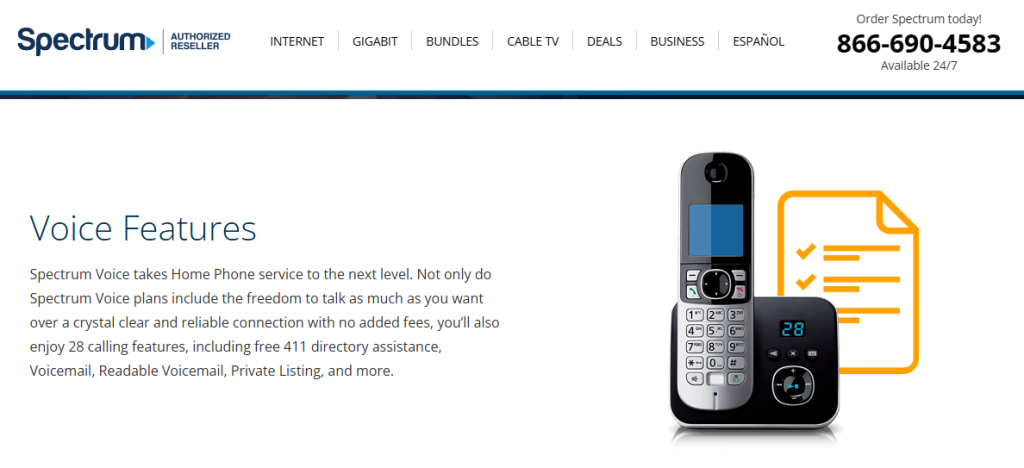
5. Spectrum Voice
Spectrum Voice is a phone package that comes with Spectrum Internet or Spectrum TV. It can’t be purchased separately. It comes with unlimited calls to North America, including the US, Canada, Mexico, and Puerto Rico. For an extra $5 monthly, you can also call international destinations.
Here are the available bundles:
- With Internet Premier – $65 monthly
- With TV Select Signature – $110 monthly
- With Internet and TV – $140 monthly
To connect your landline to Spectrum’s network, you’d need a modem since Spectrum Voice runs on VoIP technology. Spectrum stopped offering copper landline services to provide their customers with better and more affordable call services, which is possible only with newer technologies.

How the Copper Switch-Off Will Impact Landline Users
Copper landline providers are rare, with major carriers transitioning to fiber optic and wireless infrastructure. Even if you manage to secure a copper landline today, expect higher costs due to the challenges of maintaining aging infrastructure. Copper landline services are also being phased out entirely, meaning they won’t be around in the long run.
Best alternative to copper landline service
Instead, carriers are encouraging subscribers to transition to VoIP services. These newer options offer clearer call quality, better reliability, and advanced features that traditional landlines can’t match. Additionally, VoIP can be used with existing landline handsets by connecting them to a VoIP adapter or modem with a phone jack, ensuring a seamless transition for users who prefer the familiarity of their old devices.
The following articles provide further insights into this issue:
- Understanding the Impact of Copper Switch-Off
- The Primary Reason for POTS Line Retirement
- Analog vs Digital Phone Lines: Differences & Advantages
While the end of copper landlines may seem inconvenient, the shift to modern communication solutions ultimately provides better performance, cost-effectiveness, and long-term sustainability. If you still rely on a copper landline, now is the time to explore alternative options to stay connected without disruption.



